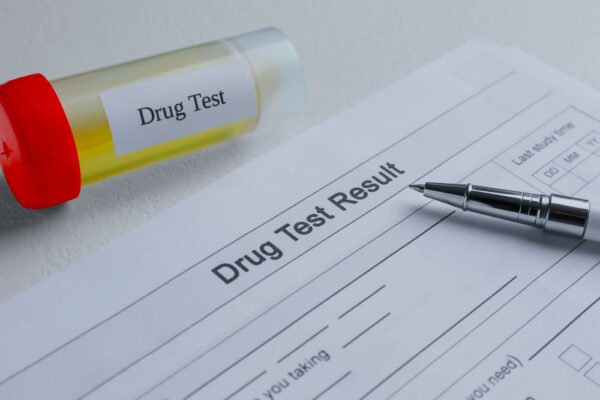If you’ve recently taken Klonopin and have an upcoming drug test, you might be feeling a bit nervous about what to expect. Whether it was prescribed for a panic disorder or taken for anxiety disorders, the thought of how long Klonopin stays in your system can be worrying.
This guide is here to help you navigate through these concerns by answering some common questions. While we won’t jump straight to the answers, rest assured that by the end, you’ll have a clearer understanding of what to anticipate when it comes to drug tests.
What is Klonopin?
Klonopin is a medication primarily used to treat anxiety and seizure disorders. It belongs to a class of drugs known as benzodiazepines, which work by calming the central nervous system. This makes it effective for those who struggle with panic disorder and other anxiety-related conditions.
The half-life of Klonopin is 30 to 40 hours. This means that it takes about 30 to 40 hours for the concentration of the drug in your bloodstream to reduce by half. This property allows Klonopin to provide sustained relief over a length of time. It also means it can linger in your system longer than some other medications.
Understanding how Klonopin functions can help in comprehending how long it might show up in various drug tests.
How long does Klonopin stay in your blood?
Blood tests are one type of drug test used to detect the presence of substances like Klonopin. These tests are quite precise and can determine the exact amount of the drug in your system.
For Klonopin, it can be detected in the bloodstream for up to 80 hours, or approximately 3 days, after the last dose. The effects of Klonopin may last longer, but the drug itself becomes less detectable over time.
If you’re having a blood test, it’s crucial to inform your medical professional about any medications you’re taking as part of your treatment plan. This helps ensure accurate results and proper medical guidance.
How long does Klonopin stay in your urine?
Urine tests are commonly used due to their convenience and the longer detection window they offer. When it comes to Klonopin, urine tests can detect the medication for 5 to 21 days after the last dose.
This range depends on several factors, including the dosage taken and the individual’s metabolism. If you’re concerned about a urine test, understanding these factors can help provide some peace of mind.
It’s essential to consider how the length of time Klonopin stays in your system might vary based on these elements.
How long does Klonopin stay in your saliva?
Saliva tests are another method used to detect drugs like Klonopin. These tests are less invasive and can provide quick results.
Klonopin can be detected in saliva for about 5 to 6 days after the last intake. The ease of collecting samples makes saliva tests a popular choice, especially in situations where rapid results are needed.
Like other tests, the detection period can vary based on individual factors, but knowing the typical timeframe can help you prepare accordingly.
How long does Klonopin stay in your hair?
Hair follicle tests are known for their extensive detection windows, allowing substances to be discovered long after use. For Klonopin, hair tests can detect the drug for up to 90 days.
This type of drug test can provide a comprehensive overview of long-term drug use, as the substance gets incorporated into the hair as it grows.
If you’re undergoing a hair follicle test, it’s important to be aware of this extended detection period.
Factors that affect how long Klonopin stays in your system
Metabolism plays a crucial role in how quickly Klonopin is processed and eliminated from your body. The rate at which your metabolism works can significantly influence the duration that Klonopin remains in your system.
Dosage and frequency of use are also important factors. Higher doses and frequent use can extend the time that Klonopin stays detectable in your body. It is essential to consider the amount and regularity of intake when evaluating how long the drug will be present.
Age and health conditions further impact the elimination process. Older individuals and those with certain health conditions may experience a slower elimination of Klonopin. Additionally, the type of drug test used affects the detection window, as different tests have varying capabilities in identifying the presence of Klonopin.
Best Klonopin rehab in Lake Forest, Orange County, CA
Klonopin abuse poses significant dangers, including the risk of dependence and addiction, which can lead to severe withdrawal symptoms when attempting to stop use. Overdosing on Klonopin can result in respiratory depression, coma, or even death, especially when combined with other substances such as alcohol or opioids. Additionally, long-term abuse can worsen underlying mental health issues, commonly leading to increased anxiety, depression, or cognitive impairments.
If you or someone you know is struggling with Klonopin abuse, seek help immediately. Contact Zoe Behavioral Health today to explore your options for a safe and effective path to recovery.


